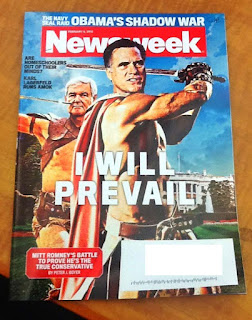My upper level Latin students have been working through Augustus' Res Gestae (RG) and Suetonius Divus Augustus this fall. We've finished with the RG and started in on Suetonius with a quick read through his Divus Iulius in English translation. The development of gladiatorial spectacles from Julius Caesar to Augustus is quite important in the transformation of such spectacles from funerary displays to public entertainments. In 65 B.C.E. Caesar staged extravagant gladiatorial combats in honor of his father, who had died in 85 B.C.E.. Suetonius (Div. Iul. 10) reports that Caesar had brought so many gladiators to Rome causing his enemies to fear for their safety that a limit was imposed on the number of gladiators that could be used in a spectacle. Augustus himself imposed further limitations on the number of gladiators, but we see that he must have made exceptions to these limits when staging spectacles himself or on behalf of his heirs. Although limitations were being placed on the number of gladiators, the first permanent amphitheater was constructed in 29 B.C.E. by Statilius Taurus, one of Augustus' most successful generals.
In RG 22 Augustus recounts the entertainments he sponsored for the people of Rome, including gladiatorial combats (munus, sing./munera pl.), Greek style athletics, chariot races, and animal hunts. Approximately 10,000 gladiators fought in eight different show, an extremely high number per show no matter how the math is worked out in light of the restrictions that had been placed on the number of gladiators. Presumably Augustus staged at least some of his spectacles in the amphitheater of Statilius Taurus, but this passage suggests that there were other, temporary amphitheaters available as well. A.Cooley (Res Gestae Divi Augusti (2009) 203) identifies four of the five gladiatorial spectacles as follows:
- 16 B.C.E. as part of the rededication of the Temple of Quirinus.
- 12 B.C.E. as part of the Quinquatria, a festival in honor of the goddess Minerva, in the name of his grandsons Gaius and Lucius.
- 7 B.C.E. in memory of Agrippa, possibly in the name of Gaius and Lucius.
- 6 C.E. in memory of Drusus the Elder in the name of his grandsons Germanicus and Claudius.
Here's what Augustus has to say in Res Gestae 22:
"Three times I gave gladiatorial shows in my own name and five times in the name of my sons or grandsons; approximately 10,000 men fought in these shows. Twice I offered the people spectacles of athletes invited from every part of the empire in my own name and for a third time in the name of my grandson. Four times I celebrated games in my own name, twenty-three times more on behalf of other magistrates. As head of the college, together with M. Agrippa, I celebrated the secular games for the College of Fifteen in the consulship of C. Furnius and C. Silanus (17 B.C.E.). In my thirteenth consulship (2 B.C.E.), I first celebrated the games of Mars, which afterward in following years the consuls held successively by senatorial decree and by law. In my own name or in the name of my sons or grandsons, I sponsored hunts of animals from Africa twenty-six times for the people in the circus, in the forum or in amphitheaters, in which approximately 3,500 animals were killed." (My translation.)
And the Latin:
"Ter munus gladiatorium dedi meo nomine et quinquiens filiorum meorum aut nepotum nomine, quibus muneribus depugnaverunt hominum circiter decem millia. Bis athletarum undique accitorum spectaculum populo praebui meo nomine et tertium nepotis mei nomine. Ludos feci meo nomine quater, aliorum autem magistratuum vicem ter et viciens. Pro conlegio XV virorum magister conlegii collega M. Agrippa ludos saeclares C. Furnio C. Silano cos. feci. Consul XIII ludos Martiales primus feci quos post id tempus deinceps insequentibus annis s.c. et lege fecerunt consules. Venationes bestiarum Africanarum meo nomine aut filiorum meorum et nepotum in circo aut in foro aut in amphitheatris populo dedi sexiens et viciens, quibus confecta sunt bestiarum circiter tria millia et quingentae."
(From The Latin Library.)
More to come on Augustus' gladiatorial shows as my Latin students make their way through Suetonius...

